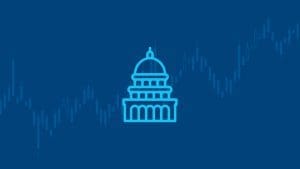On Thursday, Sept. 12, the D.C. District Court lifted the administrative stay on Kalshi’s congressional control markets, clearing the way for the platform to publicly offer its election markets.
The CFTC argued that it needed an administrative stay to prevent trading from starting before it could seek an appeal from the D.C. Circuit Court. Kalshi argued that the economic harm it would incur would be unrecoverable by the end of the process and that the company should be able to launch its election markets.
Kalshi plans to launch congressional control markets. They would allow users to bet on which party will control the House of Representatives and the Senate. Election contracts are available to Americans on PredictIt and to customers in other countries on platforms like Polymarket. Kalshi would be the first regulated derivatives exchange where customers could bet on election outcomes.
How Kalshi Beat the CFTC
On Sept. 6, Judge Jia Cobb issued an order allowing Kalshi to offer election contracts. Then the CFTC submitted a motion to prevent election trading until the regulators could appeal to the D.C. Circuit Court. Judge Cobb issued an administrative stay on Sept. 9 and lifted it as a result of the Sept. 12 hearing.
The CFTC argued that election trading was contrary to the public interest. It cited attempted market manipulation on Polymarket and concerns about undermining confidence in election outcomes as potential harms.
Kalshi’s council rebutted that the market manipulation attempts were failures and didn’t cause severe harm. Kalshi’s lawyer also argued that Kalshi was being punished for attempting to offer election contracts with oversight while Americans flocked to unregulated betting platforms overseas.
Kalshi’s council also cited the economic harm that Kalshi would incur by missing the chance to offer election contracts with less than two months to go until the election. The CFTC’s side argued that Kalshi’s economic claims were exaggerated because Kalshi had already built a robust company around non-election markets.
Judge Jia Cobb’s Reasoning
Judge Cobb sided with Kalshi on all three points. She pointed out that the CFTC had to prove that the irreparable harm the regulators were concerned about had to be “certain and great.” The CFTC’s harms to the public interest were found to be speculative.
Judge Cobb pointed out that economic harm is not considered the type of irreparable harm that could prevent a stay in cases where financial losses can be recovered at the trial’s end. However, Kalshi cannot receive financial damages from the CFTC at the end of the trial. So, Kalshi proved it would be harmed by another stay.
Kalshi cannot recover financial damages from the CFTC, but it can miss out on revenue by not being able to offer election contracts. Kalshi was also able to cite a concrete harm it would incur while the CFTC’s concerns remained speculative and failed to meet the high bar for a stay pending appeal.
The CFTC is expected to file an emergency appeal to the D.C. Circuit Court. Meanwhile, Kalshi is expected to launch its congressional control markets as soon as Friday, Sept. 13.

























